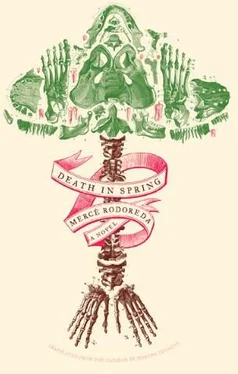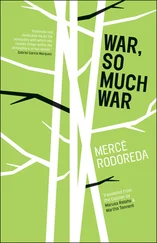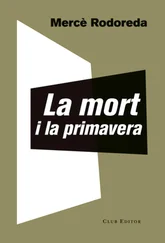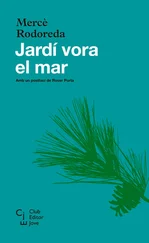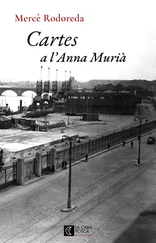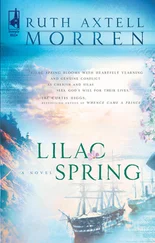My stepmother had a little box full of white feathers, another of black feathers. Sometimes, when we were tired of making soap bubbles in the courtyard, she would climb onto the table and take down the box of black feathers with the hand on her tiny arm. With the hand on her other arm — the one that was like most people’s — she would take out the feathers one by one, letting them drop from as high as she could. They were the mourners coming. I would collect them and pile them up on the table. Then she would take the other box and cry, here come the white birds, and the white feathers would flutter down, twisting round and round, a little slower than the black ones. The villagers used to say my stepmother was a bit retarded, but I didn’t think she was. We played with the feathers in the early autumn when no birds remained. In the courtyard beneath the bloom-less wisteria, a few odd flowers would still be blossoming, those that had not known how to bloom in time. Hidden among the leaves, they didn’t have much color. At times a weary wind would expose them for a moment, as if ashamed of displaying them.
My stepmother was shorter than me; she came to just above my shoulder. Her hair was straight and black, her eyes vaguely green. The corner of her eyes fanned out into thin lines, the same lines she had on both sides of her forehead and round her mouth. Like a little old woman. She fretted on the days she had to put the flowerpot at the window, in front of the curtain, and the lines would grow deeper, slightly dark.
I liked looking at her toenails while we sat on the step in front of the house: they were well placed on her toes and looked like glass. Sometimes they were sun-dappled with all the colors that arch in the sky from mountain to mountain after the rain. Her hair was mottled too, though more subdued, not as many colors. And her small teeth. She would settle in a corner on the days she was happy, from time to time laughing a howl-like laughter that gave a glimpse of the roof of her open mouth and her lizard-thin tongue. Little lizard arm, little lizard tongue. Her dresses fell straight from the shoulder, trailing the ground. In winter her feet and hands turned purple. She said they hurt. She was always cold. It took her a long time to reach the window and leave the flowerpot on the sill because she could hardly walk.
She had a sweet tooth: she would rub her hands with sweet-smelling herbs before cupping them to drink from the fountain. I tried it, but the water always tasted the same. I caught her one day eating a bee. When she realized I was watching, she spit it out, saying the bee had flown into her mouth. But I knew she ate bees. She would choose the ones that had drunk the most wisteria juice and keep them alive in her mouth for a moment, let them play a little before swallowing. One day when we were walking along the stone path, I cut off a lizard’s tail, and she threw a rock at me. The lizard was stunned. She picked it up and tried to reattach the tail. Then she stared at me and put it down without uttering a word, giving it a shove so it would scurry away while the tail finished dying.
Not much was known about her father. Her mother hanged herself. The old men at the slaughterhouse took her in, but when she had grown up a bit, she began following my father like a shadow. Father finally brought her home with him. She would fall asleep on top of the table, and father would pick her up in his arms and carry her to bed. Some nights I would reflect on things and sneak down to listen to them sleeping. I would steal down the stairs, keeping close to the wall because one of the steps creaked. Standing in front of their room, I would imagine she wasn’t sleeping with father. I would imagine she was sleeping alone, and I was afraid she was choking, choking on a bee inside her mouth, between her cheek and gum. Maybe it was flying round inside, waiting for her to fall asleep so it could escape to the courtyard with its last remaining breath. She was wild about horse fat. She would climb up on the table to take down the balls of fat she had been given. She would scoop the center out, little by little, and when father wanted to eat one, he almost always found it half-empty. If he scolded her, she went off to her corner and laughed that strange laugh of hers. But the two of them walked together and I stood apart.
She didn’t know how to swim. All the boys and girls in the village swam. But not her, because of her arm. She would sit on the riverbank and gaze at the water, sometimes plunging her feet in it, kicking and splashing water on her face and dress. When she was completely soaked, she would rub her face with both hands at the same time, then kick the water even more furiously. One day she wanted to go all the way into the water, near the canes, in the shallow water. The afternoon air was filled with color, and on the opposite bank everything had a slight tremor. Right away she wanted to go further into the river, but the water was already up to her waist. Then she slipped. I don’t know how she did it, with that tiny arm of hers, but she grabbed hold of my ankle. I lifted her up and her lips were pale. We climbed out of the river, water dripping from her dress, and she headed home. I stood and watched her until she was just a black speck in front of the houses.
I jumped back into the river. The water that enveloped my legs still seemed to hold her. We had been in this water together. Mourners were flying above the blue and purple river, beneath the branches, searching for mosquitoes and soft grass. Night arrived, and suddenly I scarcely knew my way back to the village: from Pedres Baixes to the slaughterhouse and from the slaughterhouse to the Pont de Fusta, where the river beneath the bridge transported stars and pieces of moon.
The white flower was the same as the red: the only difference was color. Five little leaves, five larger ones beneath, and a handful of yellow threads crowned by a little saucer sprouting from the heart of the flower. They bloomed year-round. When one withered, a new one immediately shot up inside the dead flower: death thrusting life upward, summer and winter, endlessly. The only flowers like that in the whole village were my stepmother’s. We didn’t know where she found them. The day she entered our house, she set the two flowerpots on the table. Father brought her bundle of clothes; the bundle and the two flowerpots were all she possessed.
The first night we were by ourselves, I sat on the floor by her door. Inside she was alone and I thought I could hear her sleeping. I imagined her covers had fallen off, like when my blanket would slide off the bed and I couldn’t be bothered to get up and put it back. While I was turning this over in my mind, I fell asleep. I woke up when I sensed I was being watched. Two eyes were bent over my face, two little rabbit eyes, small and round, like a shadow shining. When she realized I was watching her, she moved away, to her corner. The corner where she always retreated whenever father scolded her.
She would have stayed there if I hadn’t told her to sit at the table with me. She came and sat, and I told her that her hair was mussed and she laughed, and when she laughed she seemed so tiny. Then I combed her hair. I made four braids for her — two in front, two in back — like the four corners of the earth. I tied a rope round her waist and right away the dress was shorter and didn’t drag the floor so much. When she was all fixed up, we went out to the courtyard and collected wisteria blossoms to make necklaces. Then we lay flat on the ground to watch the roots emerging from the earth, lifting the house. We exposed the base of the largest root and the deeper into the ground it went, the whiter it was, as white as the worm clinging to it.
Читать дальше
